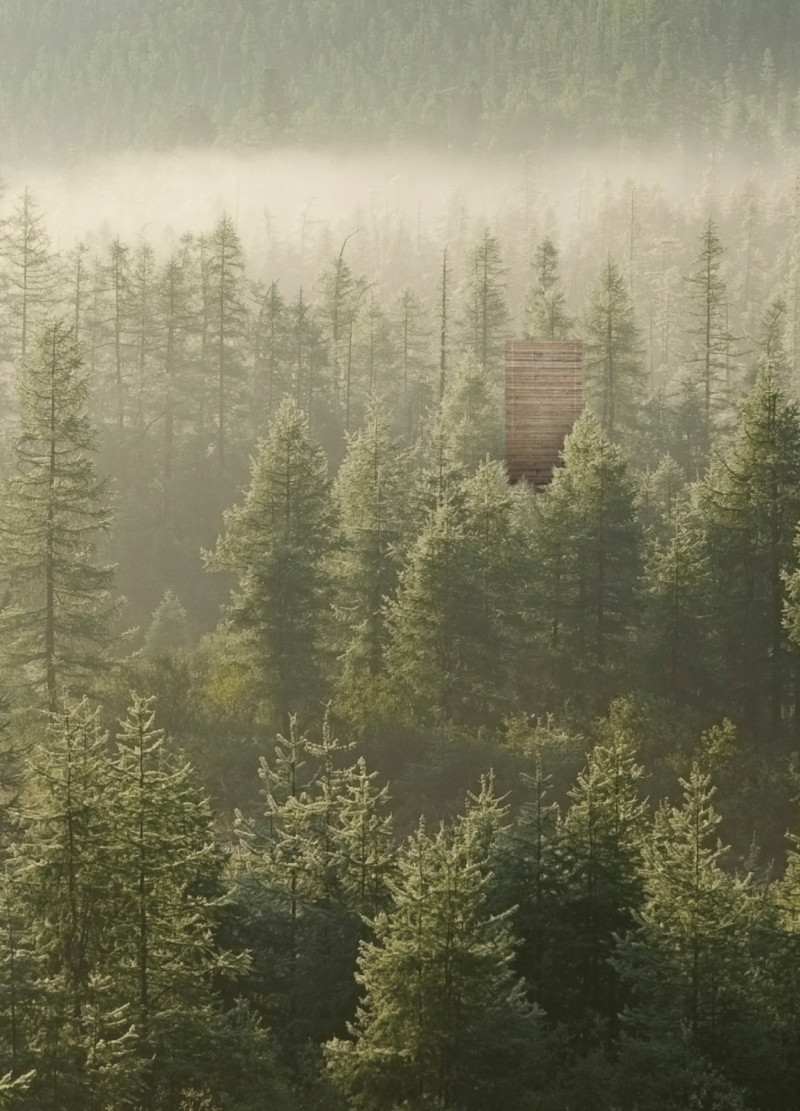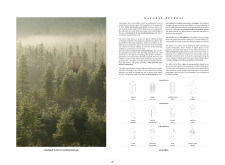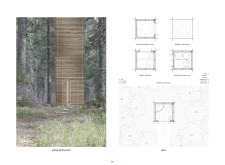5 key facts about this project
The design is set in the Ozolini forest, approximately 100 km from the Latvian capital. It is a slender, vertical structure that reflects the tall coniferous trees around it. The building rises above the forest canopy, allowing natural light to enter and creating distinctive views. Designed as a private shelter for a single occupant, the structure emphasizes simplicity and connection to nature.
Design Concept
The layout features multiple levels, each serving a specific purpose. The ground floor is used for living, while the other floors include a bedroom, a meditation area, a technical room, and an outdoor roof terrace. This arrangement enables various experiences, with each level offering framed views that engage residents with the surrounding landscape. The roof terrace acts like a lookout point, encouraging a sense of peace and reflection.
Materials and Construction Methodology
Sustainability plays a key role in the design. The building includes solar panels for energy and systems to collect rainwater, aiming to limit its environmental impact. An onsite heating system ensures comfort. The use of prefabricated wooden elements improves construction efficiency and allows for quick assembly, which helps reduce waste and aligns with modern sustainable practices.
Environmental Integration
Thoughtful planning has reduced the project's impact on the natural environment, allowing existing trees to remain undisturbed. This careful approach connects the structure with its surroundings, preserving the ecological integrity of the site. The cabin’s position enhances the user experience, promoting interaction with nature while providing a quiet retreat.
Design Detail
Each level features unique framed views, welcoming light into the interior and allowing occupants to feel immersed in the forest. This connection between the structure and its environment highlights the importance of living within nature. It creates a continual exchange between the user and the landscape, making the experience one of calm and reflection.























































